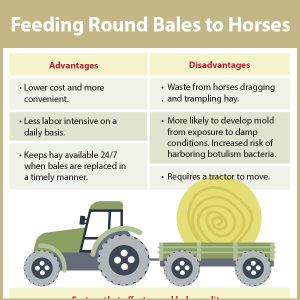
Tips for Feeding Round Bales to Horses
There is often a stigma attached to feeding round bales to horses, but managed well they can be a safe...
» View Article
There is often a stigma attached to feeding round bales to horses, but managed well they can be a safe...
» View Article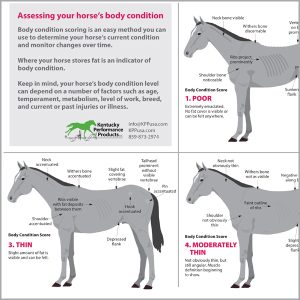
As the winter season approaches, it is time to evaluate your horse’s body condition score. It is important to make...
» View Article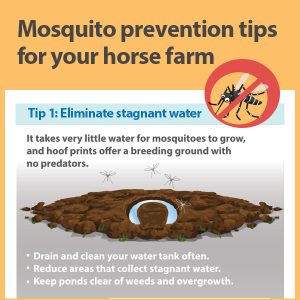
Mosquitoes are not just annoying; they pose a health risk for your horses. Mosquitoes spread several neurologic diseases: West Nile...
» View Article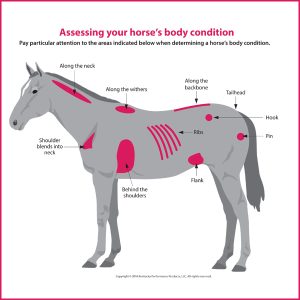
Spring has sprung and it is time to evaluate how your horse made it through the winter and revise your...
» View Article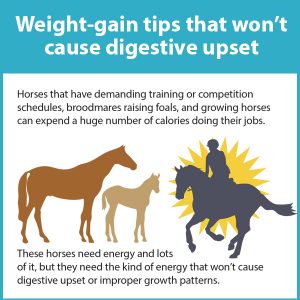
Horses that have demanding training or competition schedules, broodmares raising foals, and growing horses can expend a huge number of calories doing their jobs. These horses need energy and lots of it, but they need the kind of energy that won’t cause digestive upset or improper growth patterns.
» View Article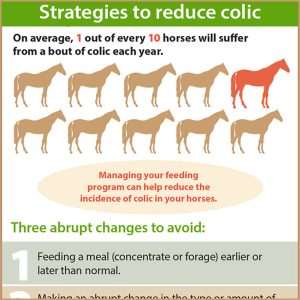
On average, 1 out of every 10 horses will suffer from a bout of colic each year. Managing your feeding program can help reduce colic in horses.
» View Article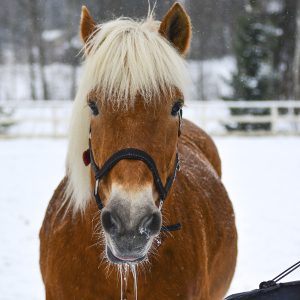
Dehydration can be as much of a problem in winter as it is in the summer. Horses need to drink...
» View Article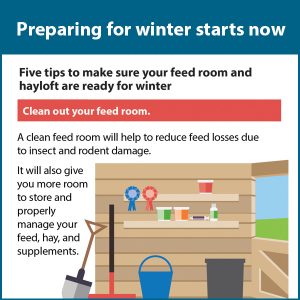
Five tips to make sure your feed room and hayloft are ready for winter.
» View Article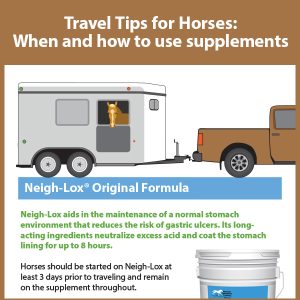
Travel Tips for Horses- Part 3: How and When to Use Supplements
» View Article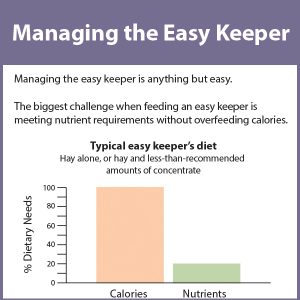
Managing the easy keeper is anything but easy. The biggest challenge when feeding an easy keeper is meeting nutrient requirements without overfeeding calories.
» View Article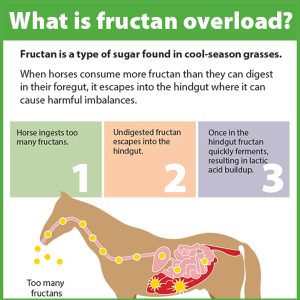
Fructan is a type of sugar found in cool-season grasses. When horses consume more fructan than they can digest in their foregut, it escapes into the hindgut where it can cause harmful imbalances.
» View Article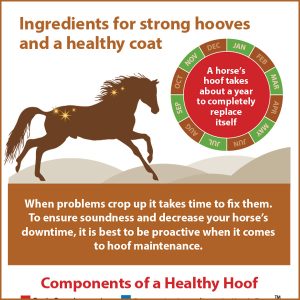
A horse’s hoof takes about a year to completely replace itself. One of the first signs of inadequate nutrition is a dry, dull hair coat and cracked hooves. When problems crop up it takes time to fix them. To ensure soundness and decrease your horse’s downtime, it is best to be proactive when it comes to hoof maintenance.
» View Article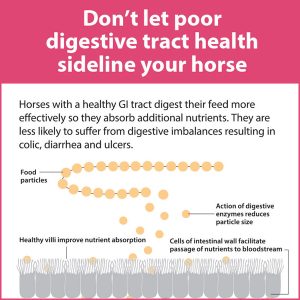
Horses with a healthy GI tract digest their feed more effectively so they absorb additional nutrients. They are less likely to suffer from digestive imbalances resulting in colic, diarrhea and ulcers.
» View Article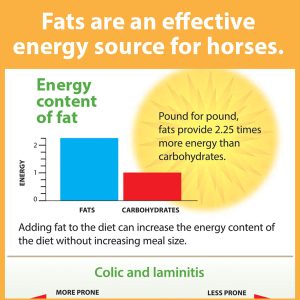
Pound for pound, fats provide 2.25 times more energy than carbohydrates. Adding fat to the diet can increase the energy content of the diet without increasing meal size.
» View Article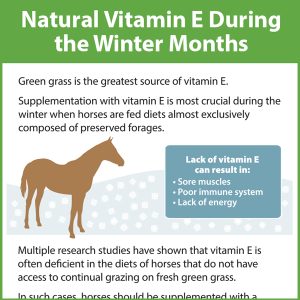
Green grass is the greatest source of vitamin E. Supplementation with vitamin E is most crucial during the winter when horses are fed diets almost exclusively composed of preserved forages.
» View Article
"*" indicates required fields